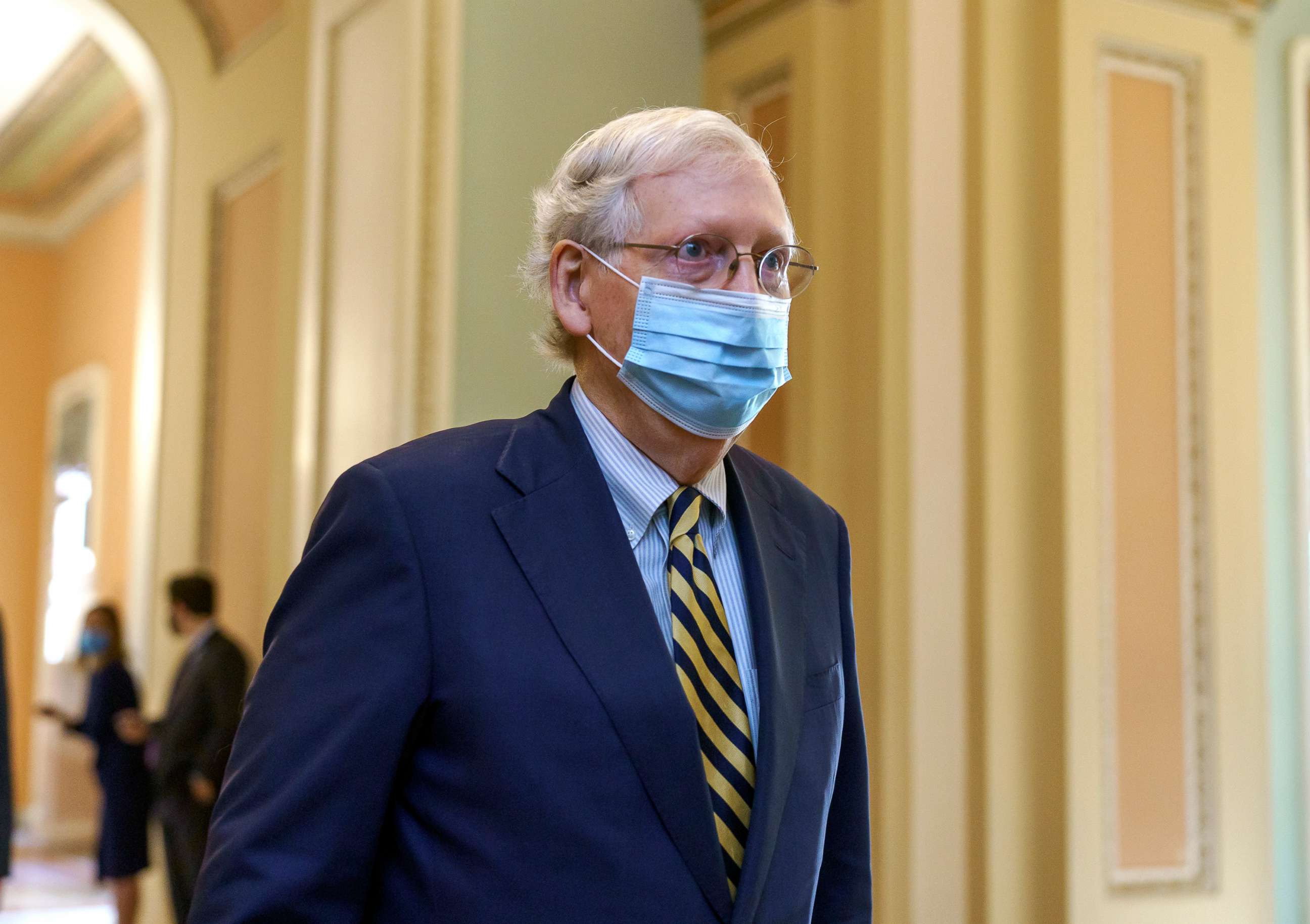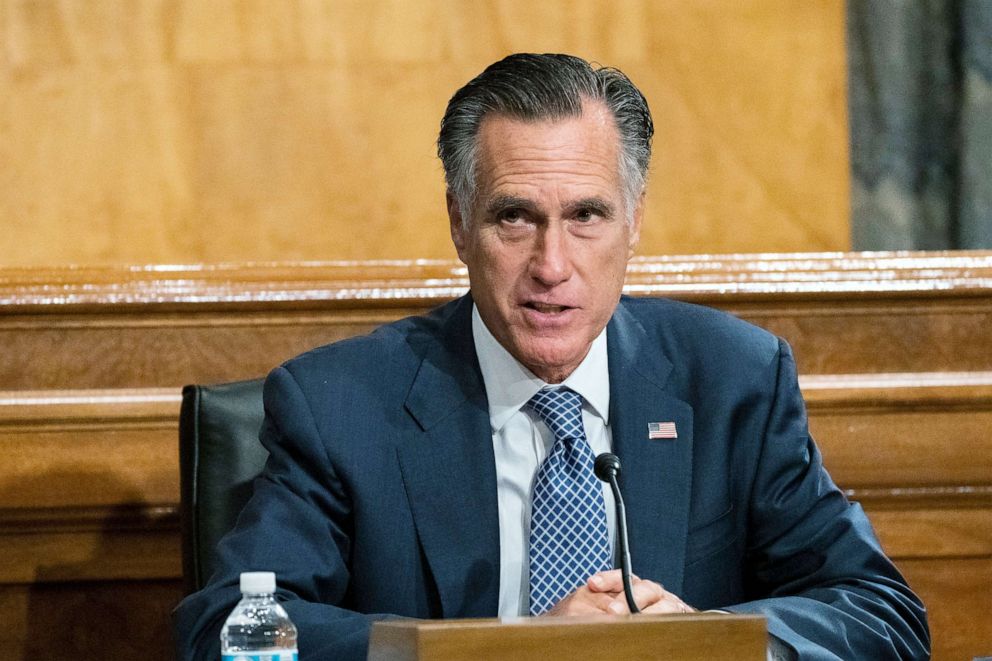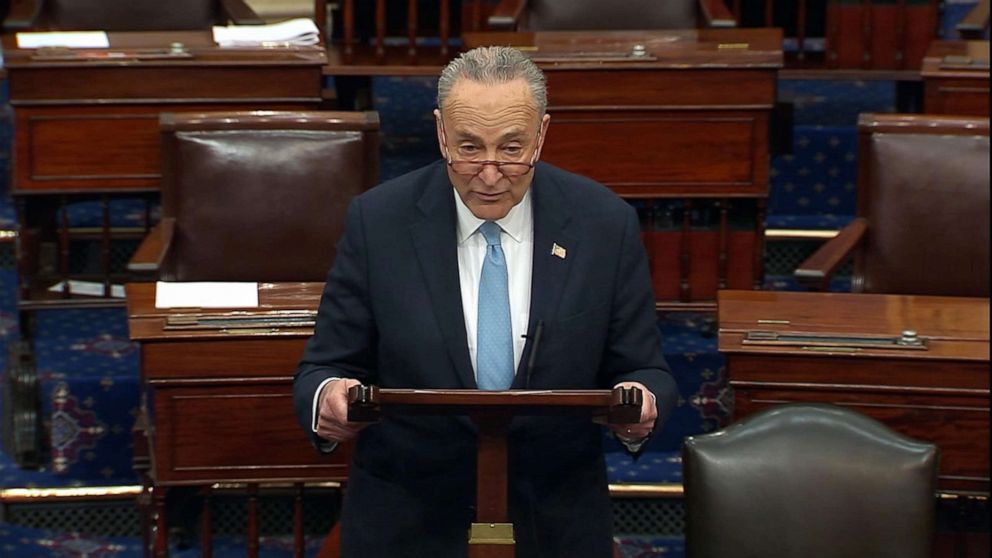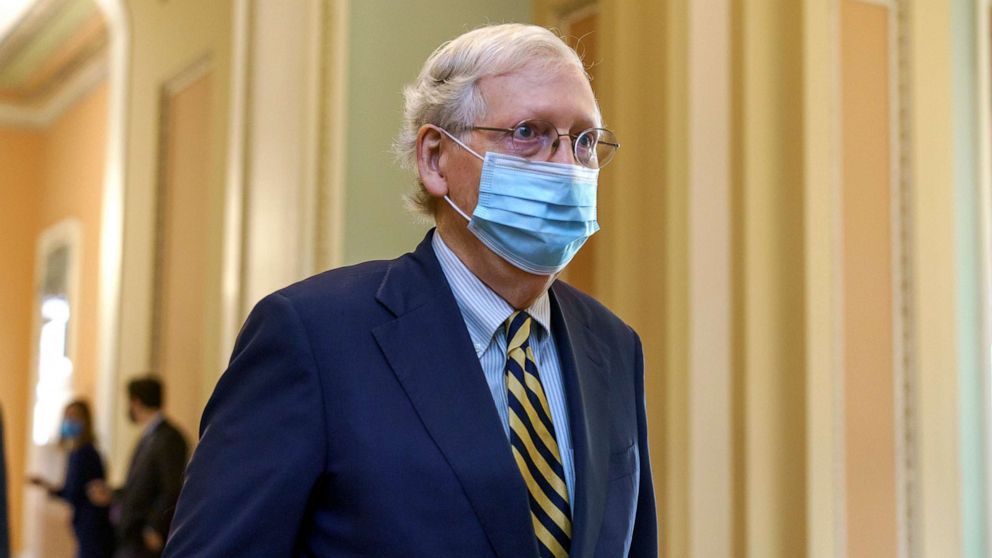McConnell consolidates GOP support for SCOTUS nomination vote but timing unclear
Senate Majority Leader Mitch McConnell made key progress Monday in locking down Republican support for a vote this year -- possibly even before Election Day -- to replace Justice Ruth Bader Ginsburg.
Iowa Republican Sen. Charles Grassley, who Democrats had hoped might side with their objections, instead said he was good with moving forward on President Donald Trump's expected nomination.
"While there was ambiguity about the American people's will for the direction of the Supreme Court in 2016 under a divided government, there is no such ambiguity in 2020," Grassley said in a statement.
"So, make no mistake: if the shoe were on the other foot, Senate Democrats wouldn't hesitate to use their Constitutional authority and anything else at their disposal to fill this seat," he added.
Colorado Republican Sen. Cory Gardner, in a fierce reelection battle and another Democratic target, while refusing to answer reporters' questions Monday about where he stood, said in a statement it was up to the GOP-controlled Senate to decide.
"When a President exercises constitutional authority to nominate a judge for the Supreme Court vacancy, the Senate must decide how to best fulfill its constitutional duty of advice and consent," Gardner said.

Another GOP senator, Mitt Romney of Utah, has said he will not be announcing his position immediately as others have.
A spokeswoman for Romney told ABC News that the senator wants to consult with his GOP colleagues at a weekly lunch Tuesday before making any decisions.
Romney, the lone Republican to vote to convict Trump in the impeachment trial earlier this year, is one of few Republicans who could potentially scuttle the planned vote.
McConnell can afford to lose only three of his conference members and still keep a Trump nominee on track to a final confirmation vote. Currently, there are two -- Sens. Lisa Murkowski of Alaska and Susan Collins of Maine -- who say they do not back a confirmation vote before the election.
Trump has said he plans to name a nominee by week's end and wants to have his replacement confirmed by Nov. 3. But historically, Congress has taken far longer to complete the entire process, an average of 70 days, according to a Congressional Research Service report.
Other Republicans to watch include centrists such as Sens. Shelley Moore Capito of West Virginia and Pat Toomey of Pennsylvania, though insiders say they would be surprised if the pair bucked their party leadership and Trump.
Over the weekend, institutionalists like Sen. Lamar Alexander, R-Tenn., and Rob Portman, R-Ohio, made it clear they are behind McConnell and Trump.

In a Senate floor speech Monday on the Supreme Court vacancy, McConnell -- who began with a tribute to the late Ginsburg -- said point blank what he had indicated in his paper statement over the weekend, "President Trump's nominee for this vacancy will receive a vote on the floor of the Senate."
He took aim at what he called "reckless" Democratic efforts to stop a vote.
"Now, already, some of the same individuals who tried every conceivable dirty trick to obstruct Justice (Neil) Gorsuch and Justice (Brett) Kavanaugh are lining up, lining up to declare the third time will be the charm."
Without committing to a vote before the election, McConnell made clear he thinks there's plenty of time to confirm a Trump nominee before year's end.
"We're already hearing incorrect claims that there is not sufficient time to examine and confirm a nominee," he said. "We can debunk this myth in about 30 seconds."
McConnell warned of the coming attacks by Democrats and their allies, saying, "Two years ago, a radical movement tried to use unproven accusations to ruin a man's life, because they could not win a vote fair and square. Now they appear to be readying an even more appalling sequel. This time, the target will not just be the innocence for one American, but our very governing institutions themselves."

Speaking after McConnell, Minority Leader Chuck Schumer said much "hangs in the balance," ticking off a wide-ranging list of consequences for everything from health care to climate change.
"The right to join a union, marry who you love, freely exercise your right to vote, the right of a parent with a child who has cancer not to watch helpless as their son or daughter suffers without proper health care -- if you care about these things and the kind of country we live in -- this election and this vacancy mean everything and by all rights -- by every modicum of decency and honor -- Leader McConnell and the Republican senate majority have no right -- no right to fill it."
He laid into McConnell, Senate Judiciary Chairman Lindsey Graham and other Republicans for reversing position on filling a court seat in an election year after not allowing a vote on President Barack Obama's nominee Merrick Garland in 2016.
"Why even bother constructing a pretense for your position? Why say it's this rule or that rule and then do the exact opposite when it suits your interests. Why not just come to the floor and say -- I'm going to do whatever's best for my political party -- consistency be damned, reason be damned, democracy be damned. Just admit it."
He warned that a handful of Republicans have it in their power to save the Senate, saying, "Tell me how -- tell me how this would not spell the end of this supposedly great body?"
"I don't see how. There's only one way -- one way for us to have some hope of coming together again, trusting each other again lowering the temperature – moving forward -- and that is for four brave Senate Republicans to commit to rejecting any nominee until the next president is installed. That was Justice Ginsburg's dying wish and it may be the Senate's only last hope," Schumer said.




